In Fort Myers Slip-and-Fall Lawsuits, Witness Statements May Be Key
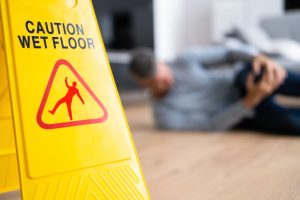 Witnesses can play a pivotal role in any Florida personal injury case – and that includes Fort Myers slip-and-fall lawsuits (also known as Premises Liability lawsuits). Sometimes with the ubiquitous presence of security and cell phone cameras, it’s easy to forget that the firsthand accounts of other people can be invaluable in helping us reconstruct what happened and who was at-fault.
Witnesses can play a pivotal role in any Florida personal injury case – and that includes Fort Myers slip-and-fall lawsuits (also known as Premises Liability lawsuits). Sometimes with the ubiquitous presence of security and cell phone cameras, it’s easy to forget that the firsthand accounts of other people can be invaluable in helping us reconstruct what happened and who was at-fault.
Even with video evidence, some of the strategic reasons Fort Myers slip-and-fall injury attorneys will present witness testimony of an incident:
- Corroboration. A witness – particularly one that has no connection to the plaintiff/injured person – can back up the plaintiff’s story. This not only bolsters the plaintiff’s credibility, but also strengthens their case by providing additional evidence of the defendant’s negligence. Judges and jurors are going to be more convinced of the testimony you’re providing if multiple other witnesses are consistently saying the same thing.
- Observations you may have missed. When a person is seriously injured, their focus in that moment can sometimes narrow to the pain point. This might cause them to miss key bits of information that might prove crucial to the case. Witnesses can help fill in the blanks.
- Establishing actual or constructive knowledge. Florida slip-and-fall claims aren’t easy to win. F.S. 768.0755, Florida’s slip-and-fall statute, requires evidence that the defendant/property owner had actual or constructive knowledge of a dangerous condition on site and failed to take action to remedy it. It should noted that this statute affects only cases when a transitory foreign substance is involved- The witnesses are sometimes even employees of the defendant – sometimes provide this evidence by detailing their actual knowledge of the hazard (ex: “I saw the spill and told my manager, but nothing was done to fix it or warn customers”) or testimony that the condition had existed for some time or occurred with regularity (thereby establishing constructive knowledge).
To be useful in a Fort Myers slip-and-fall case, eyewitness testimony needs to come from a person with firsthand knowledge of relevant events, a good memory, a consistent story and decent credibility. They must also be willing to testify in court. While written statements can be helpful to your lawyer’s investigation, they may be considered inadmissible in court as hearsay without the witness’s willingness to swear to it under oath.





 Florida Personal Injury Lawyer Blog
Florida Personal Injury Lawyer Blog



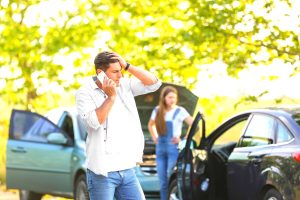 Every single day, there are an average of 1,050 Florida car accidents, according to the
Every single day, there are an average of 1,050 Florida car accidents, according to the 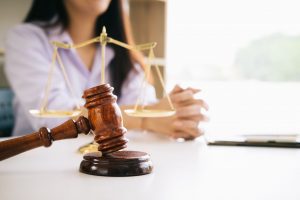 Every Florida injury lawsuit is different, and the law is always evolving. That’s why when you ask any lawyer a seemingly straightforward question, you almost always get: “It depends.”
Every Florida injury lawsuit is different, and the law is always evolving. That’s why when you ask any lawyer a seemingly straightforward question, you almost always get: “It depends.”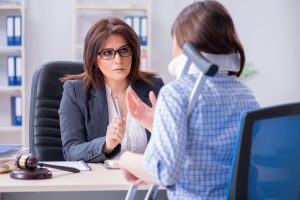 In our many years practicing civil law, we have come to recognize there are many misconceptions surrounding Fort Myers personal injury claims. Some relate to the motivations of personal injury attorneys (no, we aren’t paid if we file frivolous claims that quickly get tossed). Others misconstrue how the processes works (no, you aren’t guaranteed a payout just because you were seriously hurt).
In our many years practicing civil law, we have come to recognize there are many misconceptions surrounding Fort Myers personal injury claims. Some relate to the motivations of personal injury attorneys (no, we aren’t paid if we file frivolous claims that quickly get tossed). Others misconstrue how the processes works (no, you aren’t guaranteed a payout just because you were seriously hurt). In any Florida premises liability case, the question of whether the defendant is responsible for the harm someone else suffered on their property often depends heavily on the unique circumstances of the case. Sometimes, that circumstance is a giant ice cream cone.
In any Florida premises liability case, the question of whether the defendant is responsible for the harm someone else suffered on their property often depends heavily on the unique circumstances of the case. Sometimes, that circumstance is a giant ice cream cone.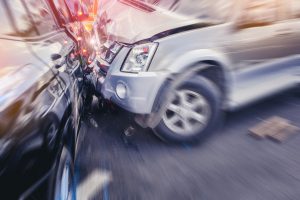 When Florida crash injuries are significant and lasting, it is necessary to analyze all potential avenues of financial recovery. In some cases, that may include claims against car manufacturers for dangerous vehicle design. These types of tort claims are referred to as product liability lawsuits.
When Florida crash injuries are significant and lasting, it is necessary to analyze all potential avenues of financial recovery. In some cases, that may include claims against car manufacturers for dangerous vehicle design. These types of tort claims are referred to as product liability lawsuits.
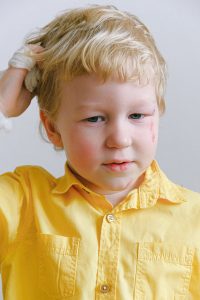 The novel coronavirus (COVID-19) pandemic has created unprecedented financial and personal challenges in Florida and across the country. Parents especially are under a great deal of pressure. With schools out and distance learning underway, parents are expected to stay informed, prepare meals, remain calm, care for basic needs, teach and often continue to work.
The novel coronavirus (COVID-19) pandemic has created unprecedented financial and personal challenges in Florida and across the country. Parents especially are under a great deal of pressure. With schools out and distance learning underway, parents are expected to stay informed, prepare meals, remain calm, care for basic needs, teach and often continue to work.






